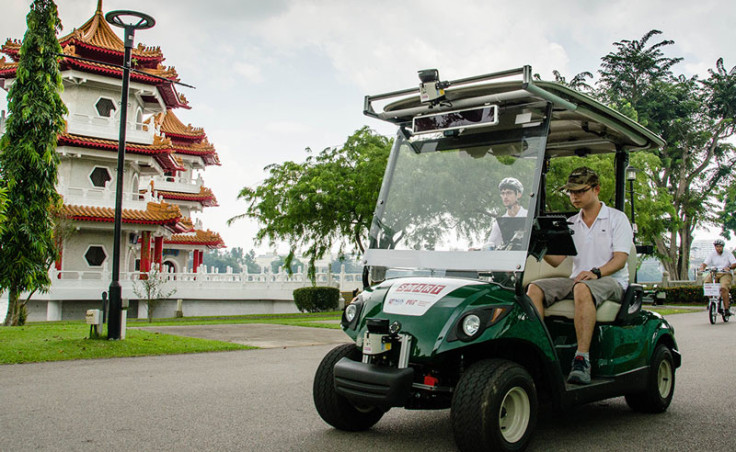Self-driving golf carts for tourists trialled in Singapore

Self-driving golf carts have been introduced in Singapore to transport tourists as part of a six-day trial to test the technology. The experiment was conducted by members of the Singapore MIT Alliance for Research and Technology (SMART) as part of the International Conference on Intelligent Robots and Systems this week.
The experiments worked using an online booking system that allowed visitors to a large public garden in Singapore to schedule pick-ups and drop-offs at various stations. The golf carts were then redeployed and automatically routed when passengers got out. Of the 500 tourists that took part in the tests, 98% said they would use the autonomous vehicles again.
The driverless buggies were first unveiled earlier in 2015 during the Smart Nation Innovations conference in Singapore, which showed off technologies vying to be part of Prime Minister Lee Hsien Loong's vision of creating a "smart nation". Speaking to IBTimes UK at the time, Lee said one of the most immediate issues to overcome was that of transport.
"On an island of this size, with such a dense population, it is very important to consider how best to set up the infrastructure in the most efficient way," Lee said. "I'm looking forward to seeing what innovative solutions we come up with and then witnessing them be implemented."
Before self-driving vehicles can be rolled out on any significant scale, a number of regulatory and technological issues still need to be overcome. One of the most notable hurdles is understanding how best to enable the vehicles' to communicate with other drivers on the road.
The SMART researchers revealed the only difficulty the golf carts encountered was when a large, slow-moving monitor lizard crossed the path of one of the vehicles. This resulted in a stand-off between the reptile and the golf cart.
"There are still issues that remain research topics and challenges for self-driving cars," Daniela Rus, a director at MIT's Computer Science and Artificial Intelligence Laboratory (CSAIL), told IBTimes UK. "Today's robots can not do 'silent' communication the way humans do in road situations."
© Copyright IBTimes 2025. All rights reserved.






















